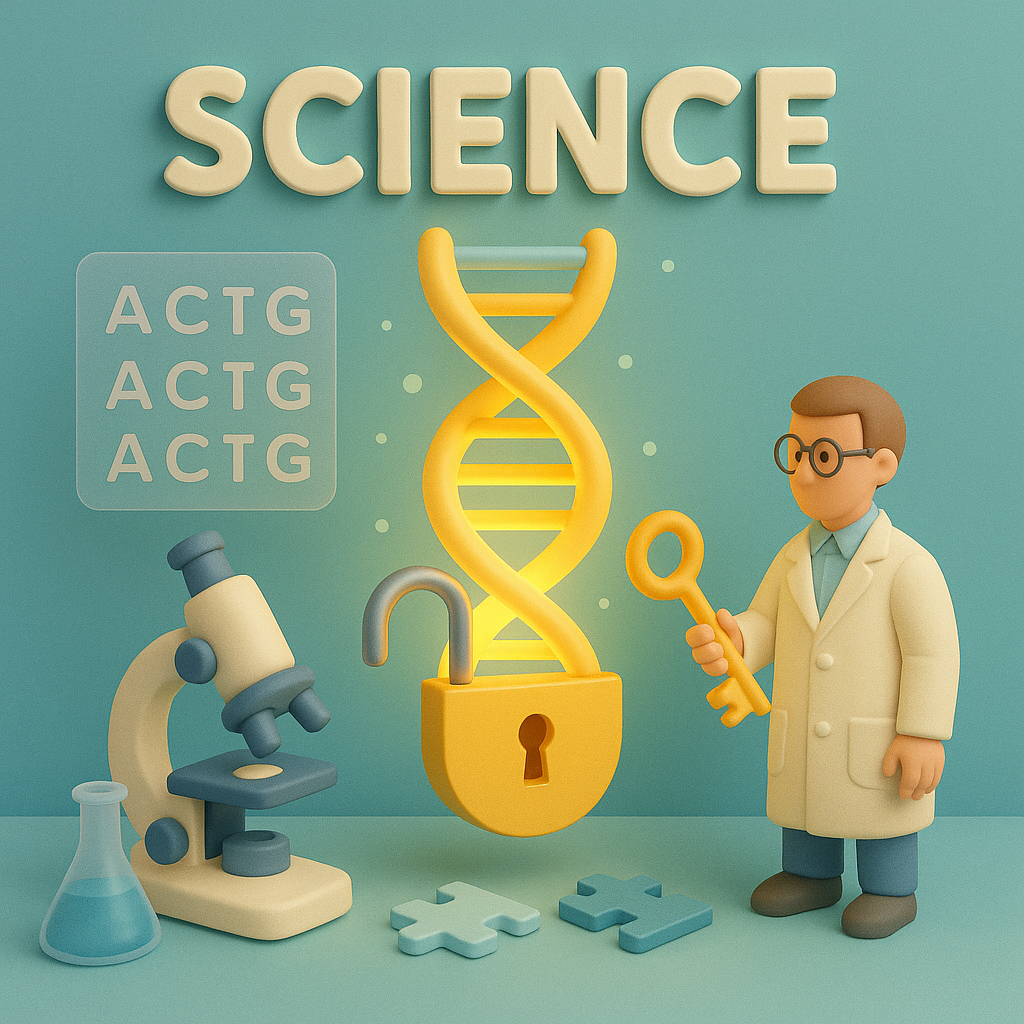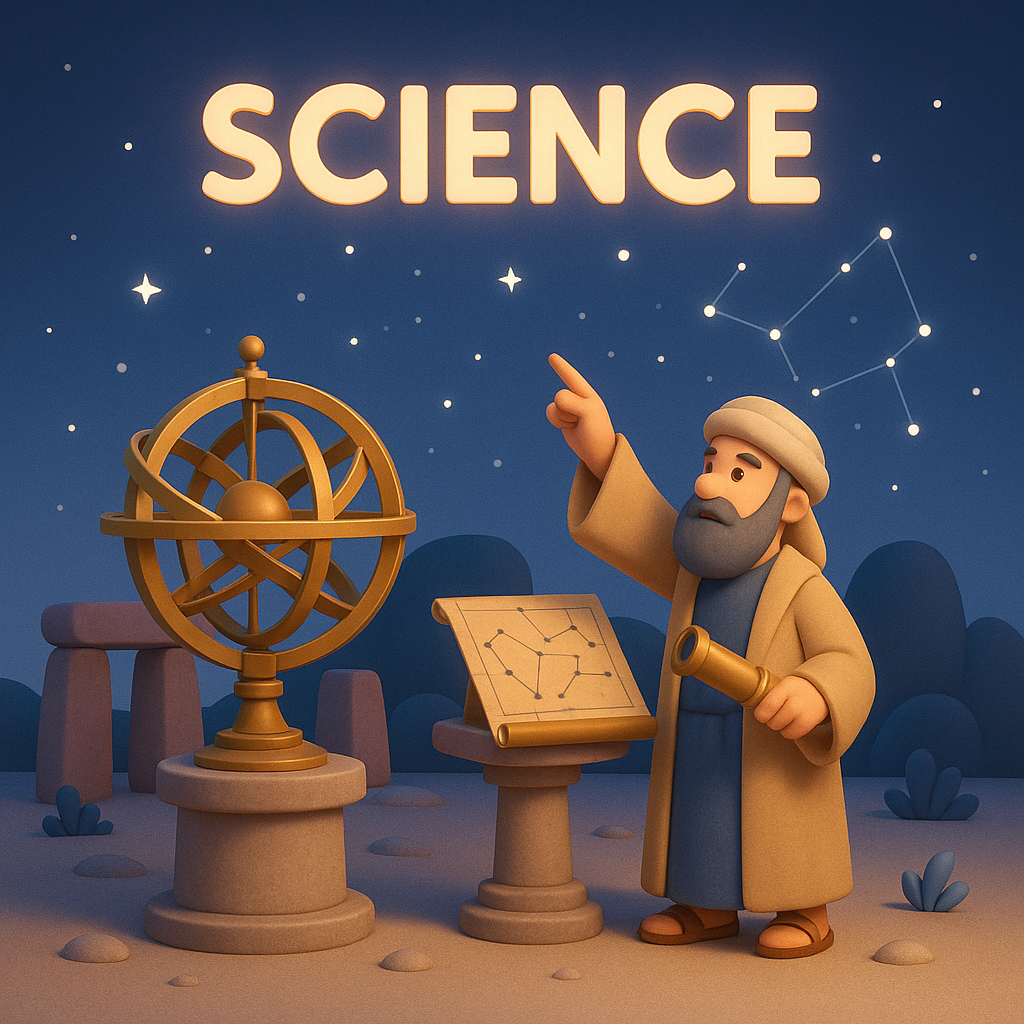Science
Definition
The word "science" refers to the systematic study of the structure and behavior of the natural and physical world through observation, experimentation, and analysis.
Parts of Speech
- Noun
Pronunciation
American English
- IPA Pronunciation: /ˈsaɪ.əns/
- Respelling: SIGH-uhns
British English
- IPA Pronunciation: /ˈsaɪ.əns/
- Respelling: SIGH-uhns
Etymology
The word "science" originates from the Latin "scientia," meaning "knowledge," derived from "scire," meaning "to know." The term came into English via Old French in the 14th century and has since evolved to encompass the systematic and empirical study of phenomena.
Derivatives
- Scientist (noun)
- Scientific (adjective)
- Scientifically (adverb)
- Sciences (noun, plural)
- Scientism (noun)
Synonyms
- Knowledge
- Discipline
- Study
Antonyms
- Ignorance
- Superstition
- None
Usage
The term "science" is widely used to refer to fields of study that apply empirical methods. For example: "Physics and chemistry are branches of science," or "The advancement of science has improved our quality of life."
Related Terms
- Research: The process of systematic investigation.
- Experiment: A procedure to test hypotheses and gather data.
- Theory: A system of ideas intended to explain phenomena.
Detailed Definitions
Noun
- The systematic study of the natural world: Refers to disciplines like biology, physics, and chemistry.
- Example: "Science has unlocked the mysteries of the human genome."
- A specific branch of knowledge or study: Refers to specialized fields within science.
- Example: "Astronomy is an ancient science."
- Knowledge obtained through study and experimentation: Refers to facts and information derived from scientific methods.
- Example: "The findings are based on the latest science."
science



🇨🇳 Mandarin
- 科学 (Science): Kēxué
- IPA: /kʰɤ˧˥ ɕɥɛ˧˥/
- Respell: Khe-shwé
🇮🇳 Hindi
- विज्ञान (Science): Vigyaan
- IPA: /vɪɡjɑːn/
- Respell: Vi-gyaan
🇪🇸 Spanish
- Ciencia (Science): Ciencia
- IPA: /ˈθjen.θja/ (Spain), /ˈsjen.sja/ (Latin America)
- Respell: Then-thya (Spain), Sjen-sya (Latin America)
🇫🇷 French
- Science (Science): Science
- IPA: /sjɑ̃s/
- Respell: Syans
🇸🇦 Modern Standard Arabic
- العلم (Science): al-'ilm
- IPA: /ʔalʕilm/
- Respell: al-'ilm
🇧🇩 Bengali
- বিজ্ঞান (Science): Biggan
- IPA: /biɡɡan/
- Respell: Big-gan
🇷🇺 Russian
- Наука (Science): Nauka
- IPA: /ˈnaʊkə/
- Respell: Nau-ka
🇵🇹 Portuguese
- Ciência (Science): Ciência
- IPA: /ˈsi.ẽ.sjɐ/
- Respell: Si-en-sya
🇮🇩 Indonesian
- Ilmu pengetahuan (Science): Ilmu pengetahuan
- IPA: /ilmu pəngətahuan/
- Respell: Il-mu pen-ge-ta-huan
🇩🇪 German
- Wissenschaft (Science): Wissenschaft
- IPA: /ˈvɪsənʃaft/
- Respell: Vis-en-shaft
🇯🇵 Japanese
- 科学 (Science): Kagaku
- IPA: /kaɡaꜜkɯ̥/
- Respell: Ka-ga-ku
🇻🇳 Vietnamese
- Khoa học (Science): Khoa học
- IPA: /kʰwaː˧˩ hwək̚˦˥˥/
- Respell: Khoa hok
🇰🇷 Korean
- 과학 (Science): Gwahak
- IPA: /kwa.hak̚/
- Respell: Kwa-hak
🇹🇷 Turkish
- Bilim (Science): Bilim
- IPA: /biˈlim/
- Respell: Bi-lim
🇵🇰 Urdu
- سائنس (Science): Science
- IPA: /sɑːɪns/
- Respell: Sains





